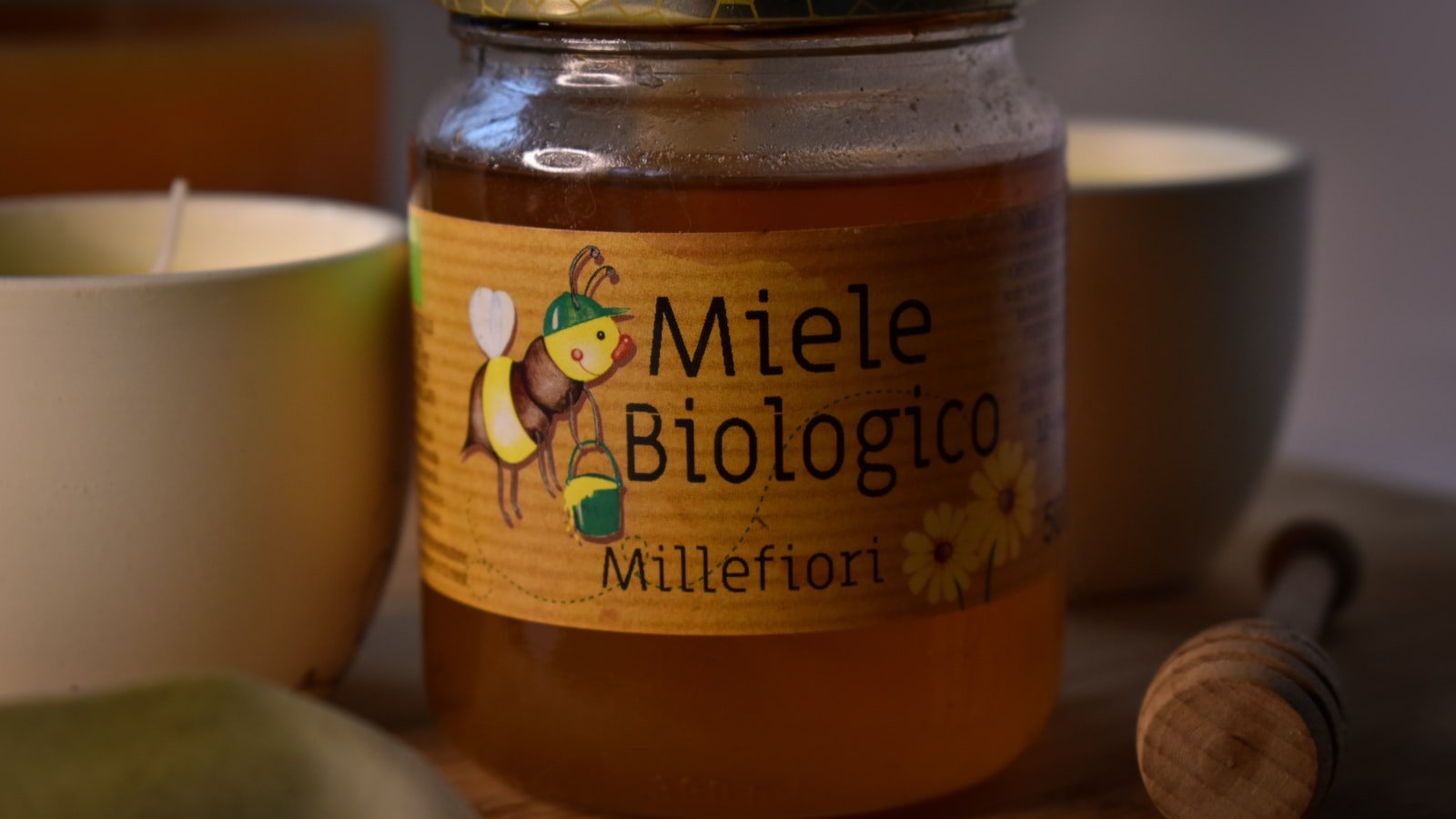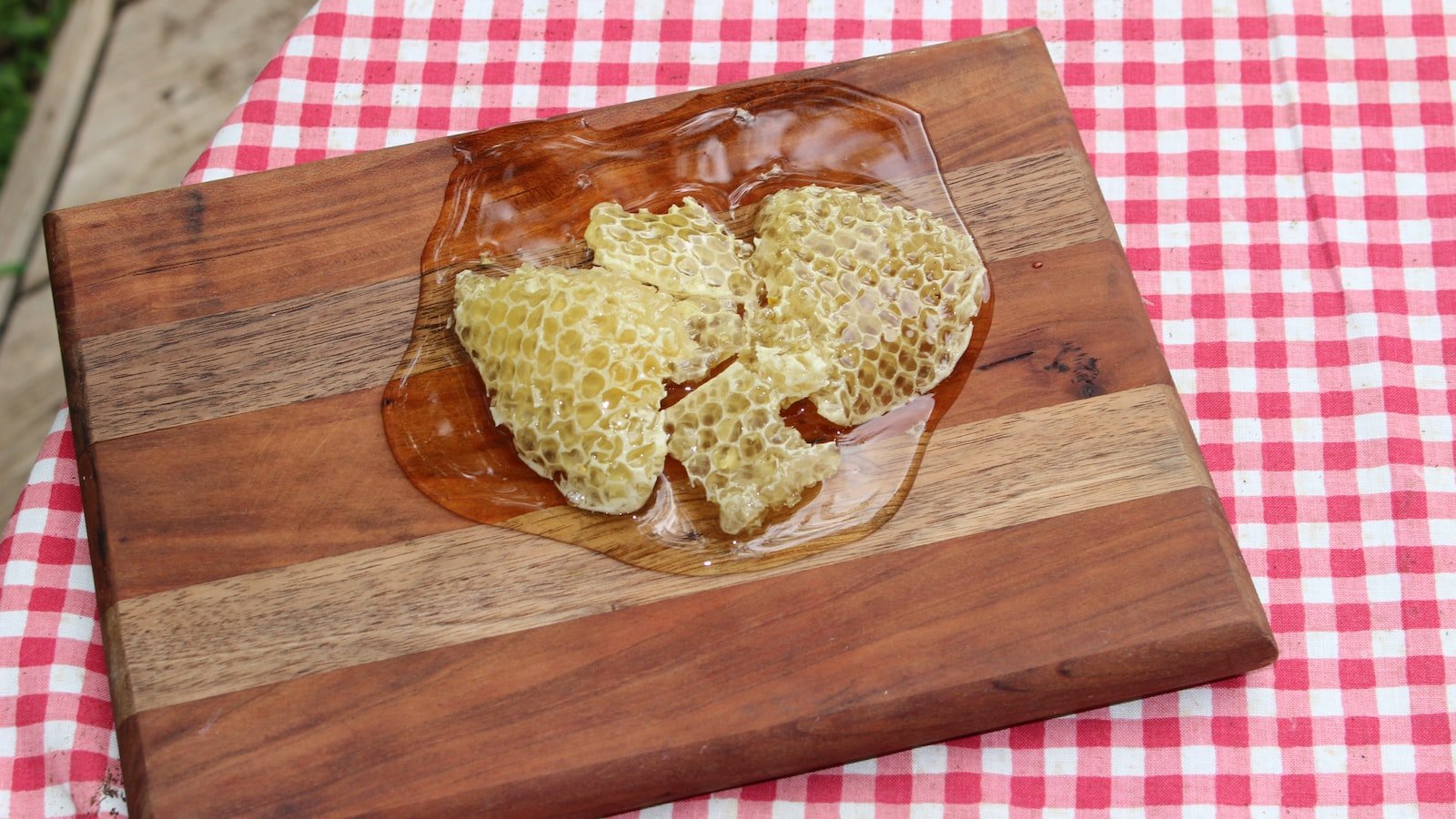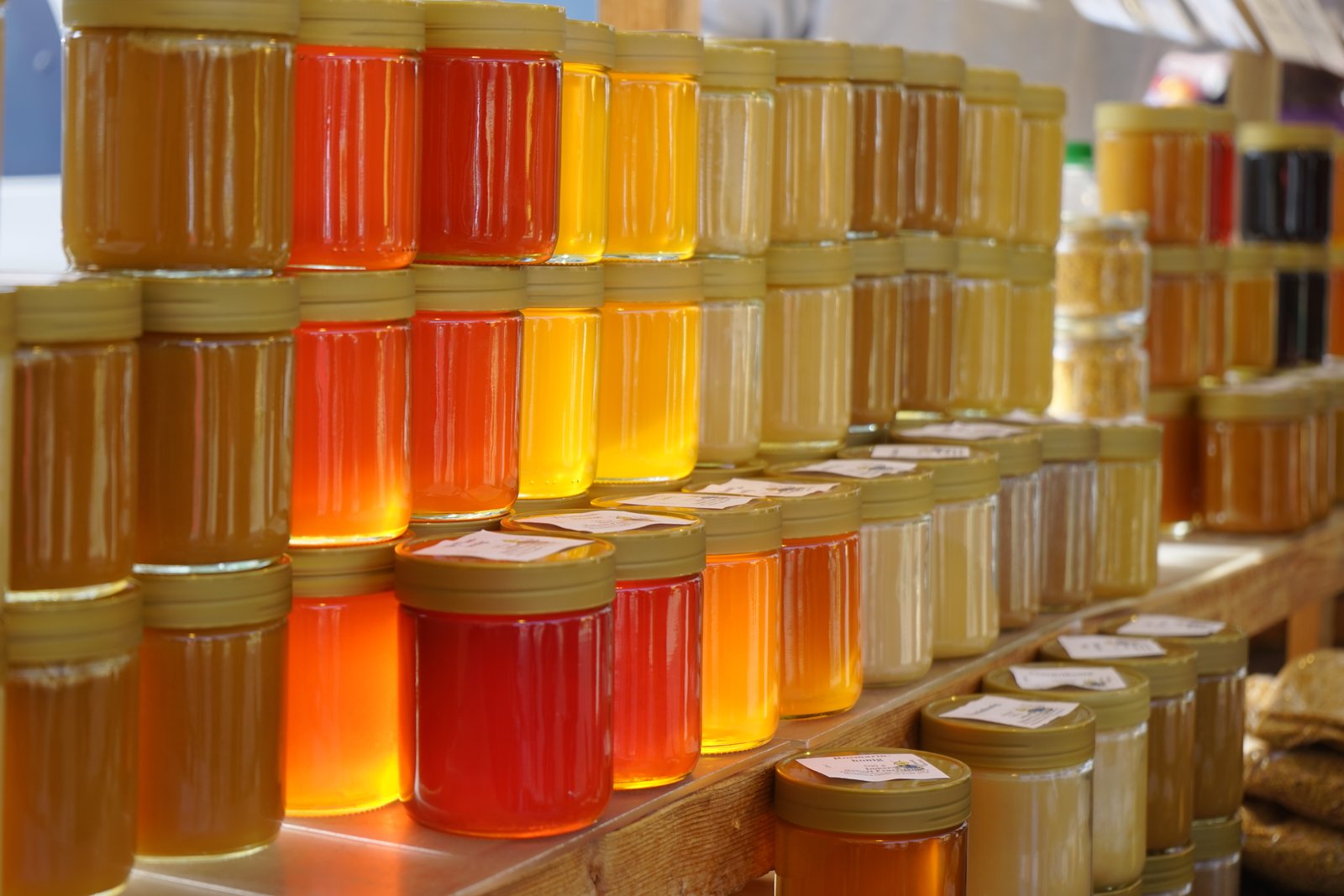Seductive aromas of sweet nectar waft through the air, tracing delicate paths to captivate our senses. The world of honey production, with all its buzzing intrigue, can indeed be intoxicating. Embarking on the journey of selling your own liquid gold is an endeavor that combines the sweetness of nature with the complexities of the legal realm. Are you ready to delve into the hive of understanding the legalities surrounding the sale of your honey? Brace yourself as we unveil the untamed hidden laws that govern this golden industry, revealing the secrets that beehives hold when it comes to legality.
Table of Contents
- – Navigating the Legal Landscape: Essential Guidelines for Selling Your Honey
- – Unraveling the Regulatory Requirements: Understanding the Legal Obligations for Honey Sellers
- – Unlocking the Potential: Exploring Licensing and Permitting for Honey Sales
- – Labeling and Packaging: Best Practices for Complying with Honey Product Regulations
- – Farmers Markets and Beyond: Exploring Sales Channels and Compliance Considerations for Honey Producers
- Q&A
- To Wrap It Up

– Navigating the Legal Landscape: Essential Guidelines for Selling Your Honey
Understanding the Regulations:
When it comes to selling your honey, it is crucial to familiarize yourself with the laws and regulations surrounding the production and labeling of food products. Each country and even different regions within a country may have specific guidelines that need to be followed. These regulations generally cover aspects such as labeling requirements, health and safety standards, and registration with relevant authorities.
Labeling Requirements:
- Ensure that your honey jars are appropriately labeled with all the necessary information. This typically includes the product name, your company or farm name, the net weight or volume, the country of origin, and any specific warnings or certifications required by local laws.
- Consider using clear and concise language when making health claims or regarding any added ingredients or processing methods used in your honey. Honest and transparent labeling will help build trust with your customers.
Meeting Health and Safety Standards:
- Ensure that your honey is produced and stored in a clean and hygienic environment. Regularly inspect and maintain your equipment to prevent any contamination or spoilage.
- It is important to handle your honey with care and adhere to proper hygiene practices to maintain its quality and prevent any possible bacterial contamination.
- Consider consulting with a food safety expert or agency to ensure that your production processes align with the required health and safety standards in your region.

– Unraveling the Regulatory Requirements: Understanding the Legal Obligations for Honey Sellers
Unraveling the Regulatory Requirements: Understanding the Legal Obligations for Honey Sellers
Selling honey may seem like a sweet and straightforward venture, but the regulatory landscape surrounding this golden nectar can be more complex than meets the eye. As a honey seller, having a solid grasp of the legal obligations that come with your business is crucial to ensuring compliance and avoiding potential penalties. Here, we explore the key regulatory requirements that honey sellers need to unravel and understand.
Licensing and Registration
One of the first steps in navigating the legal obligations as a honey seller is obtaining the necessary licenses and registrations. Depending on your jurisdiction, you may be required to acquire specific permits to operate your business legally. These licenses not only validate your enterprise but also help in establishing credibility and trust with your customers. It’s essential to research and understand the licensing requirements in your area to ensure you meet all the necessary criteria.
Labeling and Product Claims
When it comes to selling honey, accurate labeling is a legal obligation that cannot be overlooked. The labels on your honey jars must provide clear and truthful information, including the origin of the honey, nutritional facts, and any potential allergens. Additionally, if you make specific claims about your product, such as it being organic or having specific health benefits, you need to ensure you meet the legal requirements to use such claims. Non-compliance can not only lead to legal ramifications but can also harm your reputation in the market.
Quality and Safety Standards
Ensuring the quality and safety of the honey you sell is not just a good business practice – it’s also a legal obligation. Adhering to national or regional quality standards for honey production and processing is crucial. This includes factors like maintaining proper hygiene during extraction and packaging, controlling moisture levels, and avoiding the presence of contaminants. Regular testing and compliance with quality guidelines not only protect consumers but also preserve the integrity of your brand and minimize the risk of regulatory penalties.
As a honey seller, your commitment to understanding and complying with the legal obligations that surround your business will not only safeguard your enterprise but also demonstrate your professionalism and dedication to providing a high-quality product to consumers.

– Unlocking the Potential: Exploring Licensing and Permitting for Honey Sales
When it comes to selling honey, navigating through the world of licensing and permitting can sometimes feel like unraveling a beehive. But fear not, for we’re here to guide you through this process and unlock the sweet potential that lies ahead.
Why is licensing and permitting important for honey sales?
- Licensing and permitting ensure that your honey sales comply with local, state, and federal regulations, guaranteeing the safety and quality of your product.
- By obtaining the necessary licenses and permits, you gain credibility and build trust with your customers, positioning yourself as a legitimate and trustworthy honey producer.
- Complying with licensing and permitting requirements also helps protect the beekeeping industry as a whole, ensuring that honey production remains sustainable and environmentally responsible.
What licenses and permits are needed?
While the specific requirements may vary depending on your location, there are a few common licenses and permits you may need to sell honey:
- Business License: This is a general license that allows you to operate a business legally. Check with your local authorities to determine the requirements for obtaining a business license.
- Food Handling License: If you plan to sell honey directly to consumers or through retailers, you might need a food handling license. This certification ensures that you meet the necessary health and safety standards for handling and packaging food products.
- Sales Tax Permit: In many jurisdictions, you must obtain a sales tax permit to collect sales tax from customers. This permit is usually issued by the local tax authority.
Remember, it’s important to research and understand the specific licensing and permitting requirements for your area before diving into the world of honey sales. By following the appropriate guidelines, you’ll be on your way to turning your passion for honey into a buzzing success.
– Labeling and Packaging: Best Practices for Complying with Honey Product Regulations
Labeling and Packaging: Best Practices for Complying with Honey Product Regulations
Ensuring proper labeling and packaging of honey products is essential to comply with regulations and maintain consumer trust. Here are some best practices to follow:
- Accurate product labeling: Clearly and accurately label each honey product, including the name of the product, the amount of honey contained, and any additional ingredients or additives. Provide a clear and concise list of allergens, if applicable.
- Country of origin: Clearly indicate the country of origin on the label. This is important information for consumers, as honey sourcing can vary greatly in terms of quality and safety standards.
- Storage and handling instructions: Include clear instructions for proper storage and handling of the honey product to maintain its quality and shelf life. This may include recommendations on temperature, humidity, and storage conditions.
- Health and nutritional claims: Only make health or nutritional claims on the packaging that are supported by scientific evidence and comply with regulations. Avoid making false or misleading statements that may misinform consumers.
By adhering to these best practices, honey producers can ensure that their labeling and packaging meet regulatory requirements, promote transparency, and provide consumers with accurate information about their products.
– Farmers Markets and Beyond: Exploring Sales Channels and Compliance Considerations for Honey Producers
Farmers Markets:
One of the most popular sales channels for honey producers is participating in farmers markets. These bustling community gatherings provide a platform for direct interaction between honey producers and customers. At farmers markets, honey producers can showcase their products, share information about their unique flavors and qualities, and even provide samples to entice potential buyers.
Compliance Considerations:
- Labeling requirements: When selling honey at farmers markets, it is crucial to comply with labeling regulations. Ensure that your labels include accurate and transparent information about the honey’s source, ingredients, and any relevant certifications or quality standards.
- Health and safety regulations: Maintaining sanitary conditions and following proper food handling practices is essential when selling honey. Be sure to have a thorough understanding of local health and safety regulations to ensure compliance.
- Licensing and permits: Depending on your location, you may need to obtain specific licenses or permits to sell honey at farmers markets. Check with local authorities to ensure you have all the necessary documentation.
Beyond Farmers Markets:
While farmers markets are an excellent avenue for honey sales, exploring additional sales channels can help expand your reach and diversify your customer base. Consider these options:
- Online platforms: Create a website or utilize e-commerce platforms to sell your honey online. This allows you to reach a wider audience beyond your local community.
- Retail partnerships: Collaborate with local grocery stores, specialty food shops, or health food stores to stock your honey on their shelves. Establishing partnerships with retail outlets can help boost your brand visibility and reach.
- Commercial buyers: Explore opportunities to sell your honey to restaurants, cafes, and other food establishments. Introduce yourself to chefs and foodservice managers who value high-quality, local ingredients.
- Community-supported agriculture (CSA): Consider joining or establishing a CSA program, where you can offer honey as part of a subscription box along with other farm-fresh products.
Q&A
How do I know if I can legally sell honey?
To determine if you can legally sell honey, you’ll need to check your local laws and regulations. Start by contacting your state’s agriculture department or honey board to obtain the necessary permits and licenses. Additionally, it’s vital to comply with labeling requirements and food safety regulations.
What permits and licenses do I need to sell honey?
The permits and licenses required to sell honey vary by jurisdiction. Generally, you’ll need a food handling permit, a sales tax license, and possibly a beekeeping or apiary permit. It’s crucial to research and apply for the appropriate documentation according to your location’s specific regulations.
What labeling requirements should I consider when selling honey?
When selling honey, you’ll likely need to adhere to certain labeling requirements. These typically include stating the net weight of the honey, your name and address as the producer, and a clear and accurate description of the product. Additionally, some regions may have specific guidelines regarding allergen warnings or organic certification.
Can I sell honey online?
Yes, selling honey online is generally allowed, but it may require additional considerations. Ensure that your online business complies with all regulations applicable to in-person sales, including permits and labeling requirements. Additionally, familiarize yourself with any specific e-commerce or shipping regulations that may exist in your area.
Are there restrictions on where I can sell honey?
While there may not be specific restrictions on where you can sell honey, it’s important to obtain the necessary permits to comply with local laws. Moreover, it’s advisable to ensure that the locations where you sell your honey are safe and properly sanitized to maintain food safety standards.
How can I ensure the safety and quality of my honey?
To ensure the safety and quality of your honey, follow good manufacturing practices and maintain proper hygiene throughout production. Regularly test your honey for contaminants and ensure it meets the required standards. Additionally, store your honey in clean, sealed containers in a cool and dry place to maintain its freshness and prevent spoilage.
To Wrap It Up
As we draw the final stroke on our journey through the intriguing realm of honey sales, we hope you now possess a clearer understanding of the intricate legalities that surround this sweet endeavor. While our exploration has delved into various regulations and requirements, it is essential to remember that this article only scratches the surface of a vast honeycomb of legislation.
Navigating the legal landscape of selling your golden jars of nature’s nectar requires diligence and a proactive approach. Familiarizing yourself with local, state, and federal laws, as well as understanding labeling and packaging requirements, will set you on the path to success. Compliance may seem like an intimidating task, but it is the key to ensuring both your business and your valued customers enjoy the sweetness without the sting of legal complications.
Always remember to stay informed and consult legal professionals or local authorities when uncertainties arise. Local beekeeping associations or agricultural agencies are invaluable resources, eagerly offering guidance to budding apiarists and experienced honey aficionados alike. Embrace the hive mentality, where knowledge is shared, and expertise is honed collectively.
In the world of honey sales, transparency reigns supreme. Acting responsibly and ethically not only safeguards the trust of your customers but also guarantees that the honey you diligently cultivate finds its way to eager tables without infringing upon any regulations. Maintaining accurate records, prioritizing sanitation practices, and staying vigilant against potential adulteration are all critical steps on this formidable path.
As you embark on your honey-selling journey, allow your appreciation for these remarkable creatures to serve as a guiding light. The symbiotic relationship between bees and humans has spanned millennia, fostering sustenance, healing, and immense wonder. Harness this connection as you navigate the maze of legal complexities, ensuring that your sweet enterprise blooms with integrity.
In closing, we extend our warmest wishes on your honey-selling endeavors. Endeavoring to understand the legalities surrounding this endeavor is not only a demonstration of astute business acumen but a testament to your dedication to preserving the delicate harmony between nature, the law, and the delectable honey that brings joy to so many. May your honey enterprise thrive, and may you savor the sweet rewards of your hard-earned success.
As an affiliate, my content may feature links to products I personally use and recommend. By taking action, like subscribing or making a purchase, you’ll be supporting my work and fueling my taco cravings at the same time. Win-win, right?
Want to read more? Check out our Affiliate Disclosure page.